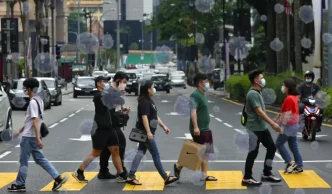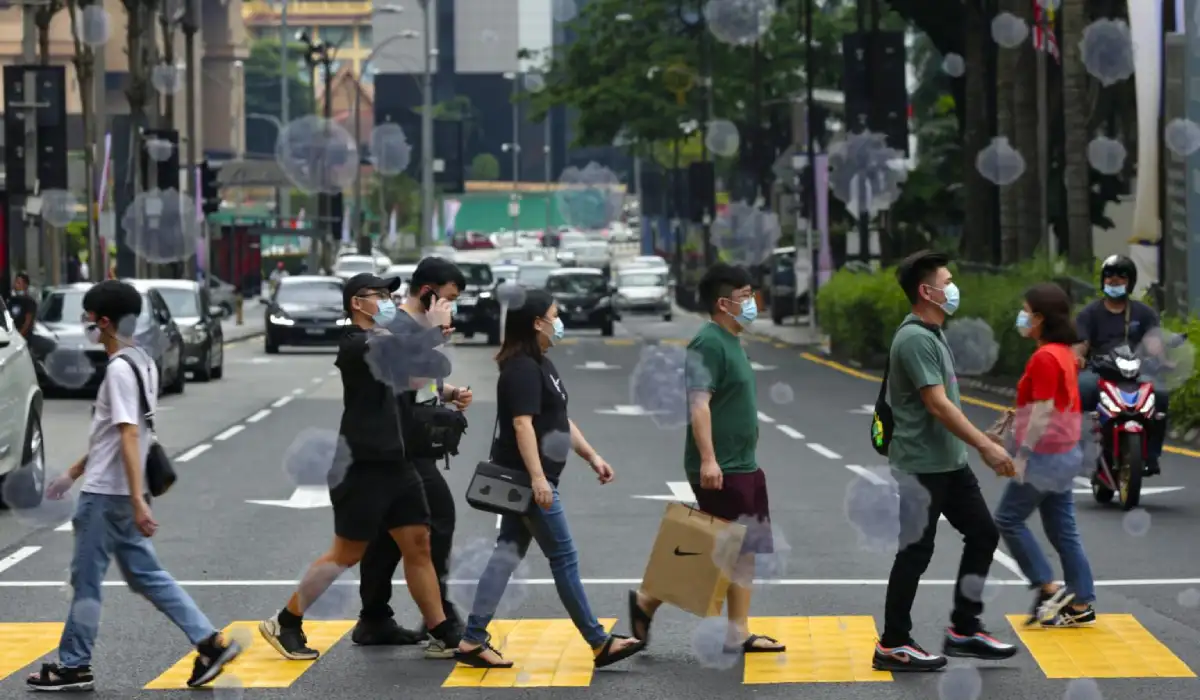Malaysia has reported its first Covid-19-related death of 2025, a somber milestone that comes alongside a sharp uptick in cases during the second week of June. According to the Health Ministry, the death occurred between June 8 and 15, during Epidemiological Week 24, marking the country’s first fatality from the virus since May 26, 2024. While officials emphasize that the situation remains under control, the 68% surge in new infections raises questions about the resilience of public health measures and vaccination campaigns in the region.
A Tragic Loss Amid Comorbidities
The Health Ministry confirmed that the deceased individual suffered from severe underlying health conditions, including heart disease and diabetes. In a statement released on June 19, the ministry noted that the person had not received their second booster shot, a factor that may have contributed to the severity of their condition. “The individual had serious comorbidities, which were heart disease and diabetes, with the deceased also not taking the second booster vaccine shot” said a ministry spokesperson.
While this death stands as an isolated case so far in 2025, it serves as a stark reminder of the virus’s lingering threat, particularly to vulnerable populations. The ministry highlighted that this year’s single fatality represents a significant decline from the 57 deaths recorded in 2024, attributing the reduction to “effective control steps” implemented over the past year. However, the recent spike in cases suggests that complacency could undermine these gains.
Sharp Rise in Cases Sparks Concern
The Health Ministry reported a total of 21,738 Covid-19 cases to date, with a notable increase during Epidemiological Week 24. The week saw 3,379 new infections, a 68% jump from the 2,011 cases recorded in the prior week. While officials maintain that the situation is managed, this surge has prompted renewed scrutiny of Malaysia’s public health response, particularly in urban centers like Kuala Lumpur, where mobile vaccination units have been a common sight since the height of the pandemic in 2021.
Beyond the rising caseload, the ministry also disclosed that six individuals with comorbidities were admitted to intensive care units (ICUs) during this period. “All cases were administered with close care, with all discharged from ICU wards. Four were allowed to return home with two transferred to normal wards” said the ministry in its statement. The successful management of these critical cases offers a glimmer of hope, yet the increasing infection rate underscores the need for sustained vigilance.
Vaccination Gaps and Public Health Challenges
The fact that the deceased had not received a second booster shot points to a broader challenge in Malaysia’s vaccination rollout. While the country achieved significant coverage during the initial phases of the pandemic, booster uptake has lagged among certain demographics, particularly the elderly and those with chronic illnesses. Public health experts have long warned that waning immunity and the emergence of new variants could exacerbate risks for unvaccinated or under-vaccinated individuals.
In response, the Health Ministry has ramped up efforts to promote booster shots, including deploying mobile vaccine trucks in cities like Kuala Lumpur—a strategy that gained traction during the 2021 rollout of vaccines such as Sinovac. These units aim to reach underserved communities and reduce barriers to access. However, public hesitancy, fueled by misinformation and fatigue after years of pandemic restrictions, remains a hurdle. “We continue to urge all eligible citizens, especially those with comorbidities, to get their boosters as soon as possible” said a ministry official.
Beyond vaccination, Malaysia’s public health strategy includes robust contact tracing, testing, and isolation protocols, which have been credited with keeping death rates low compared to previous years. Yet, the recent spike in cases suggests that these measures may need recalibration to address potential gaps in compliance or enforcement, particularly in densely populated areas.
Regional Context and Global Implications
Malaysia’s experience mirrors trends across Southeast Asia, where countries like Thailand and Vietnam have also reported sporadic increases in Covid-19 cases in 2025. The region’s high population density, coupled with varying levels of healthcare infrastructure, makes it particularly vulnerable to outbreaks. In Malaysia, urban hubs like Kuala Lumpur and Petaling Jaya serve as both economic engines and potential hotspots for viral transmission, necessitating targeted interventions.
Globally, the World Health Organization (WHO) continues to monitor Covid-19 as a public health concern, even as many nations shift focus to other pressing issues. The emergence of new variants, though not currently dominant in Malaysia, remains a wildcard that could alter the trajectory of the virus. For now, the Health Ministry’s data indicates that the situation is contained, but the 68% weekly increase serves as a cautionary signal for policymakers and citizens alike.
Economically, a resurgence of Covid-19 could strain Malaysia’s recovery efforts, particularly in sectors like tourism and retail, which have only recently regained footing after years of lockdowns and restrictions. The government has yet to announce new measures in response to the recent uptick, but analysts suggest that targeted restrictions or enhanced vaccination campaigns may be on the horizon if cases continue to climb.
Public Sentiment and Future Outlook
On social media platforms like X, Malaysians have expressed a mix of concern and frustration over the rising cases. Some users question the effectiveness of current health policies, while others call for greater transparency from the government regarding variant data and hospital capacity. “We thought Covid was behind us, but these numbers are worrying” wrote one user based in Kuala Lumpur. Another added, “Boosters are important, but why isn’t there more outreach in rural areas?”
As Malaysia navigates this latest chapter of the pandemic, the balance between public health and normalcy remains delicate. The Health Ministry’s ability to curb the current wave of infections, while addressing vaccination gaps, will be critical in preventing further fatalities. For now, the nation mourns its first Covid-19 loss of 2025, a poignant reminder that the virus, though diminished, has not disappeared.
With cases on the rise, questions linger about whether Malaysia can sustain its hard-won progress. As health officials monitor the situation, the coming weeks will test the resilience of a country determined to move forward, yet ever mindful of the challenges that remain.
















